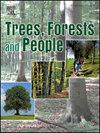公共政策与传粉媒介保护:对农业可持续性的影响
IF 2.9
Q1 FORESTRY
引用次数: 0
摘要
对农产品日益增长的需求以及单作和使用农药等集约化做法,使对生物多样性和农业可持续性至关重要的传粉媒介面临风险。本研究考察了2009年至2024年间实施的公共政策,评估了它们对传粉媒介保护的影响,并强调了提高其有效性的挑战和机遇。这项研究是通过对来自Scopus数据库的46篇科学文章的文献审查进行的。结果确定了八个关键专题领域:生态系统服务、粮食安全、保护政策和经济评估等最相关的领域,反映了传粉媒介保护方面的成就和有待改进的领域。它的结论是,最有效的政策是那些将科学证据与经济和社会考虑结合起来的政策。然而,在政策设计中过度依赖经济估值和缺乏认识等挑战仍然存在。因此,建议在未来的政策中采取更全面的方法,以确保可持续的传粉媒介保护。本文章由计算机程序翻译,如有差异,请以英文原文为准。
Public policies and pollinator conservation: Implications for agricultural sustainability
The growing demand for agricultural products and intensive practices such as monocropping and pesticide use has put pollinators, essential to biodiversity and agricultural sustainability, at risk. This study examines public policies implemented between 2009 and 2024, evaluating their influence on pollinator conservation and highlighting challenges and opportunities to enhance their effectiveness. The research was conducted through a documentary review of 46 scientific articles sourced from the Scopus database. The results identified eight key thematic areas: ecosystem services, food security, protection policies, and economic valuation, among the most relevant, reflecting both achievements and areas for improvement in pollinator conservation. It concludes that the most effective policies are those that integrate scientific evidence with economic and social considerations. However, challenges such as excessive reliance on economic valuation in policy design and a lack of awareness persist. Therefore, a more holistic approach in future policies is recommended to ensure sustainable pollinator protection.
求助全文
通过发布文献求助,成功后即可免费获取论文全文。
去求助
来源期刊

Trees, Forests and People
Economics, Econometrics and Finance-Economics, Econometrics and Finance (miscellaneous)
CiteScore
4.30
自引率
7.40%
发文量
172
审稿时长
56 days
 求助内容:
求助内容: 应助结果提醒方式:
应助结果提醒方式:


